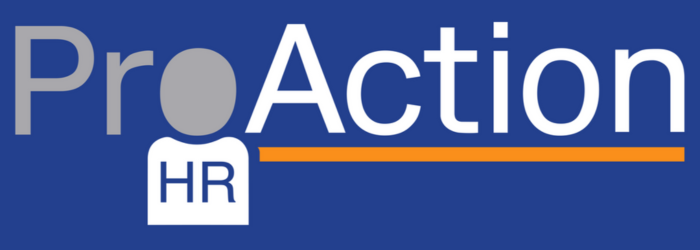HR Strategies for IT Service Businesses
Navigating the world of human resources in the IT service sector can be both rewarding and challenging, as these organizations strive for innovation and excellence within a rapidly evolving landscape. As a business leader or HR professional, understanding the unique needs of IT employees and contractors is crucial to enhancing workforce effectiveness and achieving organizational goals. Martin Nicholson, an experienced HR Director within the IT industry, offers his insights into effective HR strategies tailored for IT service businesses, from fostering an inclusive culture to optimizing project management. By implementing these strategies, you can unlock the full potential of your team, ensuring that your tech-driven efforts are both sustainable and impactful.
Let's explore how you can empower your IT organization and elevate your HR practices to new heights.
Common HR Issues in IT Services
IT services often grapple with a fast-paced environment, which can lead to understaffing and overworked employees. This strain can result in burnout and high turnover rates, creating a cycle of constant recruitment and training.
Another common issue is the struggle to offer competitive compensation packages. IT services may find it difficult to attract top talent when competing with larger tech companies that can offer higher salaries and more comprehensive benefits.
Project management also presents unique challenges. Balancing the needs of permanent staff with those of contractors requires careful coordination and clear communication to ensure everyone feels valued and motivated.
Impact of HR on Business Success
Effective HR practices are crucial for IT services to achieve their goals and maintain a competitive edge. When HR strategies align with the organization's vision, it creates a powerful synergy that drives success.
A well-managed workforce translates to more efficient operations, allowing IT services to allocate more resources to innovation and client satisfaction. This efficiency can lead to increased client confidence and potentially more business opportunities.
Moreover, when employees and contractors feel supported and valued, they become passionate advocates for the organization's vision. This enthusiasm can be contagious, inspiring others to contribute and furthering the business's reach and impact.
Building an Effective IT Workforce
Creating a strong team is essential for IT services to achieve their goals. Let's look at strategies for recruiting and retaining top talent in the IT service sector.
Recruitment Strategies for IT Services
IT services can attract talented individuals by emphasizing their innovative projects and cutting-edge technology. This appeal to technical advancement can be a powerful motivator for many job seekers.
Leveraging networks and partnerships can be an effective recruitment tool. Collaborate with tech-focused universities, professional tech associations, and other IT services to tap into a pool of tech-savvy candidates.
Consider offering flexible work arrangements or professional development opportunities to compensate for potentially lower salaries. These benefits can be attractive to candidates seeking work-life balance or career growth.
Retention Tactics that Work
Retention in IT services often hinges on creating a sense of purpose and belonging. Regular communication about the organization's impact can help employees feel connected to the mission.
Providing opportunities for professional growth and skill development can increase job satisfaction and loyalty. This could include mentorship programs, cross-functional projects, or supported attendance at relevant tech conferences.
Recognition programs that highlight employee contributions can boost morale and retention. Consider both formal awards and informal acknowledgments to show appreciation for your team's hard work and dedication.
Developing Talent in IT Services
Investing in employee development is crucial for IT services to build a skilled and motivated workforce. Let's explore effective strategies for nurturing talent within your organization.
Training Programs for Employee Growth
Effective training programs are essential for employee growth and organizational success. Start by identifying skill gaps and aligning training initiatives with both individual career goals and organizational needs.
Consider implementing a mix of learning formats:
In-house workshops led by experienced staff members
Online courses for flexible, self-paced learning
External seminars or conferences for industry-specific knowledge
Encourage a culture of continuous learning by setting aside dedicated time for professional development and recognizing employees who actively pursue growth opportunities.
Mentorship and Coaching Benefits
Mentorship and coaching programs can significantly enhance employee development and satisfaction. These relationships provide personalized guidance, support, and knowledge transfer.
Benefits of mentorship and coaching include:
Accelerated skill development
Improved job performance
Enhanced employee engagement and retention
Strengthened organizational culture
To implement an effective program, clearly define goals, match mentors and mentees based on skills and personality, and provide ongoing support and resources for both parties.
Creating a Positive Organizational Culture
A strong organizational culture is the foundation for success in IT services. It shapes how employees and contractors interact, make decisions, and pursue the organization's mission.
Importance of Values and Vision Alignment
Aligning organizational values with the vision is crucial for creating a cohesive and motivated workforce. When employees understand and believe in the organization's purpose, they're more likely to be engaged and committed to their work.
To foster this alignment:
Clearly communicate the organization's vision and values during the onboarding process
Regularly reinforce these principles through team meetings and internal communications
Recognize and celebrate behaviors that exemplify the organization's values
Encourage employees to share how their work contributes to the vision, creating a sense of purpose and connection across the organization.
Fostering Diversity and Inclusion
Creating a diverse and inclusive workplace is not just ethical—it's essential for IT service success. A diverse team brings a wider range of perspectives, leading to more innovative solutions and better representation of the clients served.
To promote diversity and inclusion:
Implement unbiased hiring practices
Provide diversity and inclusion training for all staff
Create employee resource groups to support underrepresented communities
Ensure diverse representation in leadership positions
Regularly assess your organization's diversity efforts and seek feedback from employees to continually improve your inclusive practices.
Implementing Efficient HR Processes
Streamlined HR processes are crucial for IT services to maximize their resources and focus on their core objectives. Let's explore ways to enhance HR efficiency.
Streamlining HR Operations
Efficient HR operations can significantly reduce administrative burden and free up time for strategic initiatives. Start by auditing your current processes to identify bottlenecks and redundancies.
Consider implementing these streamlining tactics:
Standardize and document HR procedures for consistency
Automate routine tasks like leave requests and timesheet approvals
Centralize employee information in a secure, easily accessible system
Implement self-service options for common HR transactions
Regularly review and update your processes to ensure they remain efficient and aligned with organizational needs.
Leveraging Technology for HR Solutions
Technology can be a game-changer for IT service HR management. The right tools can automate tasks, improve data accuracy, and provide valuable insights for decision-making.
Key areas where technology can enhance HR operations include:
Applicant tracking systems for streamlined recruitment
Learning management systems for employee training and development
Performance management software for goal-setting and reviews
Analytics tools for workforce planning and reporting
When selecting HR technology, prioritize user-friendliness, integration capabilities, and scalability to ensure long-term value for your organization.
Measuring HR Success in IT Services
Evaluating the effectiveness of HR initiatives is crucial for continuous improvement and demonstrating value to stakeholders. Let's explore key metrics and feedback mechanisms.
Key Performance Indicators to Track
Identifying and monitoring relevant KPIs can provide valuable insights into the impact of your HR strategies. Consider tracking a mix of quantitative and qualitative metrics to get a comprehensive view of HR performance.
Some important KPIs for IT service HR include:
Regularly review these metrics and adjust your HR strategies accordingly to drive continuous improvement.
Using Feedback for Continuous Improvement
Gathering and acting on feedback is essential for refining HR practices and ensuring they meet the needs of your workforce. Implement a multi-faceted approach to collecting feedback:
Conduct regular employee satisfaction surveys
Hold focus groups to dive deeper into specific issues
Encourage open communication through suggestion boxes or anonymous feedback channels
Perform exit interviews to understand reasons for employee departures
Use the insights gained from this feedback to inform HR decision-making and drive positive changes in your organization. Remember to communicate back to employees about how their feedback is being used to foster a culture of transparency and continuous improvement.
What can we do for you? - please get in touch for a FREE discovery call
Martin Nicholson is the Managing Consultant at ProAction HR, providing Human Resources Services to SME businesses in Southampton, Winchester and throughout Hampshire and the adjoining counties.
Co-founder of the Winchester-based HR company, Martin and his team support clients across Hampshire and neighbouring counties, providing HR advice, HR consultancy, and HR services. They cover a broad range of HR solutions, from one-off responsive HR support to a full Human Resources service, along with Learning & Development, Training and Change Management.
“Helping organisations to thrive on the value & uniqueness of their people.”
— ProAction HR's Purpose



